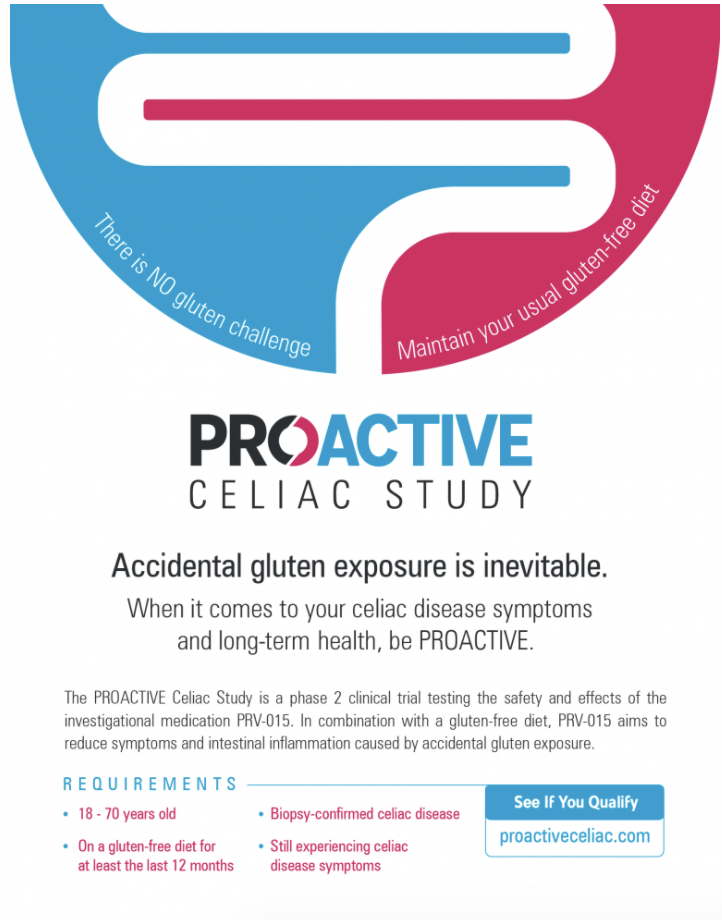Celiac research. I promise, it’s a thing. While you may think that doctors just diagnose you and go along living their life without thinking about celiac – it’s just not true. There are so many amazing gluten-free specialists/celiac specialists/digestive disease specialists that are working hard for celiac research. I know, because I interact with them regularly. I attend the annual digestive disease week for medical professionals (even though I’ve only been a doctor for Halloween). These doctors are my heroes, my celebrities, the people I want a picture with to post on Instagram. These are the movers and the shakers making it happen. But, celiac research is also about you.
Celiac Disease Research? Tell Me More
What does that mean – celiac research. Well, they’re researching for a cure. Or at least a pharmaceutical intervention that can help our lives become a lot easier, and a lot safer.
They’re also working towards figuring out just what causes celiac, who is genetically more pre-disposed to celiac in certain populations, celiac risk factors, etc. There’s research abstracts out on the regular about this disease, and even though we are completely underfunded by the NIH, compared to other diseases, there is such hard work happening right now for celiac disease.

Paying It Forward
But how can YOU help? How can you do something in the meantime while clinical trials are going on, while research is happening every year behind the scenes?
- Follow me. Subscribe to my email. It’s that easy. I tweet out, and blog about the newest research that I have access to
- Join research platforms. It doesn’t even require a blood sample or biopsy. You just tell your story for celiac research. Join the Celiac Disease Foundation iCureCeliac and Beyond Celiac’s Go Beyond Celiac.
- Find a clinical trial near you and see if you can participate in research
- Follow Beyond Celiac and their Drug Development page, and their Clinical Trials page
Celiac Disease Research Clinical Trials
Get engaged with these clinical trials!

Kanyos Bio is looking for volunteers with celiac disease to participate in the ACeD Study (Assessment of KAN-101 in Celiac Disease), a phase 1 clinical trial testing the investigational drug KAN-101.
KAN-101 acts by re-educating T cells, or tolerizing them, so they do not respond to gluten antigens. This study requires:
- 18-70 years old
- Biopsy-confirmed celiac disease
- On a gluten-free diet for at least the last 12 months
Learn more at Anokion.com/ACeD

The goal of this phase 2 clinical trial is to test the safety and effects of the investigational medication PRV-015.
In combination with a gluten-free diet, PRV-015 aims to reduce symptoms and intestinal inflammation caused by accidental gluten exposure. This research study requires NO gluten challenge. This study requires;
- 18-70 years old
- Biopsy-confirmed celiac disease
- On a gluten-free diet for at least the last 12 months
- Still experiencing celiac disease symptoms
Learn more at proactiveceliac.com
Use referral code: REFCDF

The CeDLara Study is for adults at least 18 years of age who have been diagnosed with celiac disease and are still experiencing symptoms, despite following a gluten-free diet.
The purpose of this study is to see if the study drug reduces symptoms of celiac disease when taken with a gluten-free diet. This study requires:
- Are 18 years of age or older
- Were diagnosed with celiac disease 6 or more months ago
- Are actively experiencing symptoms related to celiac disease
- Have been on a gluten-free diet for at least 6 months
Learn more at celiac-study.com/cdf.
